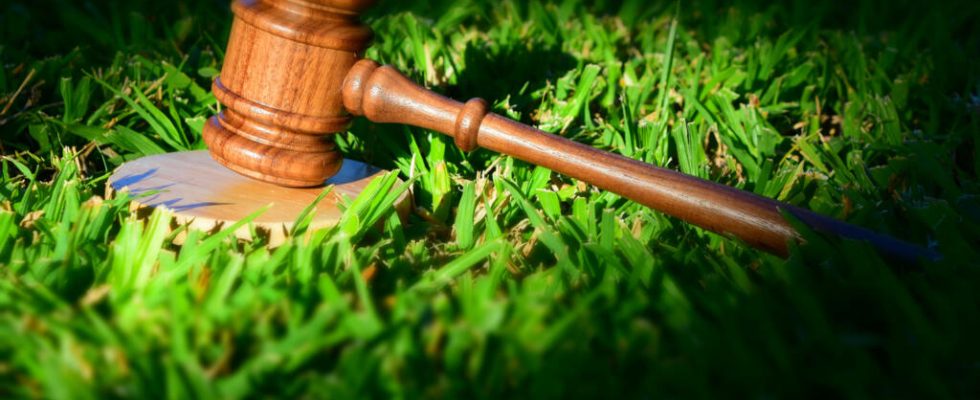The European Court of Human Rights examines this Wednesday, March 29 a request against the French State for climate inaction. Faced with climate and environmental issues, NGOs are increasingly turning to justice. Since the end of 2020, specialized centers on environmental damage have been set up in each court of appeal. But for this litigation to increase in power, magistrates need to be trained. Since last year, a dedicated course has been created within the continuing education of the National School for the Judiciary.
From the dumping of wild garbage by an individual to the international trafficking of waste by organized crime, from the breach of hunting rules to the illegal trade in protected species, the magistrates explore the great diversity of environmental damage that contributes to the complexity of this litigation, on which the magistrates must gain competence, explains Mathieu Saunier, coordinator of continuing education at the National School of Magistracy.
“ There is a gap between the expectations of civil society on environmental issues and, as a result, on the judicial response and the actual litigation that ends up before the criminal or civil courts. “, he underlines.
” For criminal litigation, for example, only 1% of litigation concerns the environment. The idea also is to allow magistrates to be trained so that they can also be a little proactive, in particular the public prosecutor’s offices, to encourage inspections and therefore take more action on attacks on the environment, and for the civil party, to arm the judges seized more and more, in particular by associations, to decide on problems of ecological damage », Details Mathieu Saunier.
► To read also: The difficult rise of environmental justice
Training in the specific administrative organization
Twenty-seven magistrates, criminal and civil, follow this training. ” I had the opportunity to find myself in small courts where we don’t have a service for everything, and so I found myself very alone when faced with environmental cases. I really need training, need help “, recognizes Simon Champigny, flying prosecutor.
” It is a right that is very complicated, because it is based on administrative rules that we, the judicial judges, are not used to knowing. And in fact, the offenses, to understand them well, it is necessary to understand the administrative organization of the natural parks, of town planning, of the protection of species “, continues the prosecutor.
► Also to listen: COP15 and biodiversity: “There is environmental justice to be put in place between countries”
Then, Simon Champigny adds: “ The second thing that is difficult to grasp is that the real experts are not currently the judges and the prosecutors, they are the administrations managed by the prefecture which have investigation or control services, which are not not criminal specialists either. So often, we are their penal referent, but it’s complicated to be the penal referent when you are not yourself trained. We both need a lot of theories, but we also need to talk to each other, to know what we’re doing.. »
” The assessment of ecological damage is new »
” In reality, there are plenty of not very well known offenses for which we do not know what to do, and we need to meet and discuss. Do we send this to trial, or is the administrative sanction enough? What instructions should be given to the investigation service? And I feel like it’s something very new, which we’re really at the very beginning of. sums up Simon Champigny.
The visibility and development of environmental justice also require more trials and the development of coherent and dissuasive case law. Here again, a collective reflection is necessary, underlines Justine, deputy prosecutor at the specialized center of Lille.
” The assessment of ecological damage is new. Calculation methods, there is not one as such, and therefore that is something that is under construction “, she explains. “ Compensation for damage is also a difficulty. Faced with a pollution that is observed, who will restore it? How do we ensure that it is actually executed? In criminal matters, this is not something we are used to seeing. »
Beyond training, the magistrates point out that in overburdened courts, everything is a question of time and staff, and therefore of political will.
